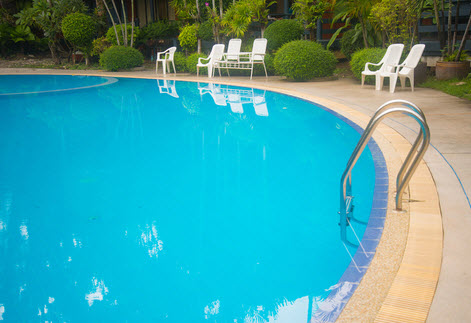Drowning is the leading cause of unintentional death for children under four, and for every one fatality, five are treated in hospital emergency rooms for serious injuries. A submerged person develops serious brain damage in about four minutes, and after just six minutes, there is a significant risk of coma and death.
These statistics, as frightening as they are, only tell part of the story. Most swimming pool cleaning chemicals contain chlorine, bromine, chelated copper, various acids, and other dangerous ingredients that are possibly fatal if swallowed or inhaled. Some pools are over-cleaned to combat bacteria, while others are under-cleaned, allowing bacteria to flourish.
What legal recourse do victims have in these situations, and what must they establish in court to obtain compensation for their injuries?
General Negligence
Legally, all Florida landowners have a duty to keep their property safe; the exact nature of that duty depends on several factors.
Many states, including Florida, still use a version of a common law classification system, because for the most part, the system is easy to explain and encourages consistent results in different jurisdictions. In the Sunshine State, the categories are split into two broader groups:
- Extensive Duty: If the victim was a business invitee (person invited onto the land for a business purpose, like an amusement park guest), a licensee by invitation (social guest), or a public invitee (a member of the general public at a public place, like a swimmer at a city pool), the owner has a duty to warn about potential hazards or prevent them.
- No Duty: If the victim was an uninvited licensee (like a party crasher) or a trespasser, the owner has no duty other than refraining from intentional harm.
Nearly everyone is either a business invitee or a licensee by invitation.
Another part of the “extensive duty” classification involves liability for foreseeable third-party crimes; for example, if one guest pushes another guest into the pool causing injury, the owner is legally responsible. The duty also includes a responsibility to balance the chemicals in the pool.
To establish liability, victim/plaintiffs must also prove that the owner knew or should have known about the hazardous condition. At public pools, this “hazardous condition” is often a lack of safety equipment close to the pool.
Swimming Pool Fences
To establish the standard of care and therefore the extent of the legal duty, most courts look to the Residential Swimming Pool Safety Act; many localities have their own standards that may supersede the state rules. At a minimum, an approved swimming pool safety system must feature:
- A safety covering that completely covers the pool when it is not in use,
- Pressure-sensitive alarms on any doors or windows that have direct access to the pool area, and
- A self-latching gate that’s at least 54 inches from the ground on a swimming pool fence that is at least 4 feet high and effectively climb-proof.
In lieu of a self-latching gate, the property owner may install a pool alarm that goes off if someone gets in the water.
Failure to follow any of these requirements is evidence of negligence. Damages usually include compensation for economic losses, such as medical bills, and noneconomic damages, such as pain and suffering.
Count On Aggressive Attorneys
For prompt assistance from an experienced personal injury lawyer in Brandon, contact Reed & Reed. Home and hospital visits are available.
From our office in Brandon, Reed & Reed helps clients in Tampa, New Tampa, Plant City, East Hillsborough County and throughout the state of Florida.
Resources:
cdc.gov/homeandrecreationalsafety/water-safety/waterinjuries-factsheet.html
leg.state.fl.us/statutes/index.cfm?App_mode=Display_Statute&URL=0500-0599/0515/0515.html

